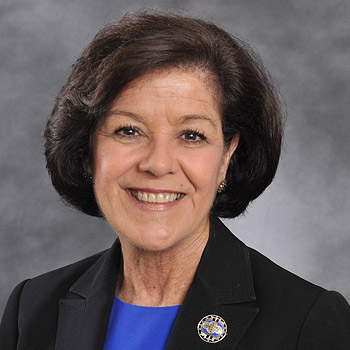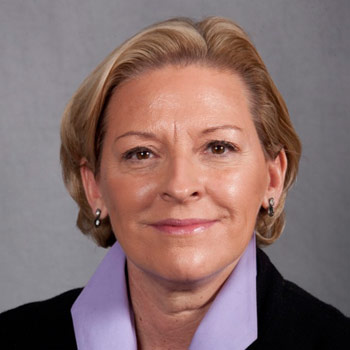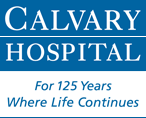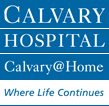National Nurses Month continues for a second year
Fast forward to May 2021. With COVID-19 vaccines widely available in this country, the crisis has evolved. Even though nearly 600,000 deaths have occurred due to COVID-19, the pandemic has come a long way from just one year ago.
The American Nurses Association (ANA), who expanded National Nurses Week in 2020, has decided to keep this a month-long celebration for 2021. This year’s theme is Nurses Make A Difference. The World Health Organization (WHO) also decided to expand its International Year of the Nurse into a second year. Given the heroic efforts of millions of nurses during this pandemic, both of these moves allow us to better elevate and celebrate this profession.
What We Learned from the Pandemic
Four trends have emerged over the past 18 months:
- The role that telehealth can play.
- The need for palliative care knowledge in nursing.
- How nurses can begin the Advance Care Planning conversation.
- The ongoing problem of healthcare inequities due to race.

Vice President of Community Patient Services
“COVID-19 has not fundamentally changed what hospice nurses do, but in how we care for vulnerable patients who are at the end of their lives,” said Nancy S. D’Agostino, RN, MSN, CHPN, and Vice President of Community Patient Services for Calvary Hospital.
“Before the pandemic, our staff would often handle some paperwork during their first visit with a new patient. COVID-19 re-wrote that process.
“We were forced to handle all paperwork by phone before stepping foot into the home. This allowed us to use the entire visit for direct patient care and focus more on what the patients and their families needed. Our teams also doubled up on patient visits on alternate days. This minimized risks to our team and kept everyone as safe as possible.”
How COVID-19 Affected Nurses
The majority of nurses in the U.S. work in curative settings. Large hospitals often cared for hundreds of COVID-19 patients at a time, straining their capacity to handle their complex needs. Even COVID patients who were otherwise healthy died suddenly. For nurses focused on curative care, the shocking mortality of COVID patients made them realize how little they knew about palliative care and the roles that they could play in Advance Care Planning for their patients.
Upon admission, staff in curative settings typically inquire about Advance Care Directives such as a Health Care Proxy, Living Will, and a DNR.
“Even at Calvary, which is devoted to the care of terminally ill patients, it is surprising how reluctant people can be about Advance Care Directives,” said Margaret M. Pelkowski, RN, MSN, Vice President for Hospital Patient Care Services, Calvary Hospital.

Vice President for Hospital Patient Care Services
“Often at this late stage, family members can be resistant to any conversations about this subject. This is frequently related to their belief that arranging Advance Care Directives means giving up on their loved one; actually, nothing could be further from the truth.”
In many hospitals, the challenging task of educating patients and families often falls to the nursing team. However, once nurses quickly establish a rapport with patients and their families, engaging them in this important conversation is much more realistic.
“During the past year, our nursing team immediately stepped up to the unique challenges presented by COVID-19. From calming patients and families to wearing PPE, we’re so proud of how quickly and how well every member of Calvary’s nursing department pivoted and adapted to a new ‘normal’ when they came into work every day,” added Ms. Pelkowski.
Healthcare Inequities
A decades-long issue that has been exacerbated by this pandemic has been healthcare inequities due to race. Throughout the nearly 18 months that we have struggled with COVID-19, the infection, hospitalization, and death rates of this virus have disproportionately affected the African-American and Latino communities.
“Nurses are trained to care for our patients to our best ability,” added Ms. D’Agostino. “Despite the many challenges that may exist, we must work together more to minimize those inequities as quickly as possible. Every person should have equal access to healthcare. Your race should have nothing to do with access to quality care.”
The Future of Nursing
For more than a decade, the nursing profession has been in dire need of meeting the demand for more professionals. The American Hospital Association is calling for an additional 6 million new nursing jobs by the year 2030, while the WHO is asking for an additional 18 million worldwide.
This work is not for everyone, but for those who seek meaningful work, being a nurse can be extremely rewarding.
- Calvary is proud to celebrate our nurses during National Nurses Month. We invite you to read our nurses’ stories.
- We are always looking for dedicated caring professionals to join our team, learn more about the nursing jobs and hospice and palliative care employment opportunities available at Calvary.
Categories
Archives
- June 2025
- May 2025
- April 2025
- March 2025
- February 2025
- October 2024
- August 2024
- July 2024
- May 2024
- April 2024
- March 2024
- February 2024
- December 2023
- November 2023
- October 2023
- August 2023
- July 2023
- June 2023
- May 2023
- April 2023
- March 2023
- January 2023
- December 2022
- October 2022
- August 2022
- July 2022
- June 2022
- April 2022
- March 2022
- February 2022
- January 2022
- October 2021
- September 2021
- August 2021
- July 2021
- June 2021
- May 2021
- April 2021
- March 2021
- February 2021
- December 2020
- November 2020
- October 2020
- September 2020
- August 2020
- July 2020
- May 2020
- April 2020
- March 2020
- February 2020
- January 2020
- December 2019
- November 2019
- October 2019
- September 2019
- August 2019
- July 2019
- May 2019
- April 2019
- March 2019
- February 2019
- January 2019
- December 2018
- November 2018
- October 2018
- September 2018
- August 2018
- July 2018
- June 2018
- May 2018
- April 2018
- December 2017
- November 2017
- October 2017
- September 2017
- August 2017
- July 2017
- June 2017
- May 2017
- April 2017
- April 2012

